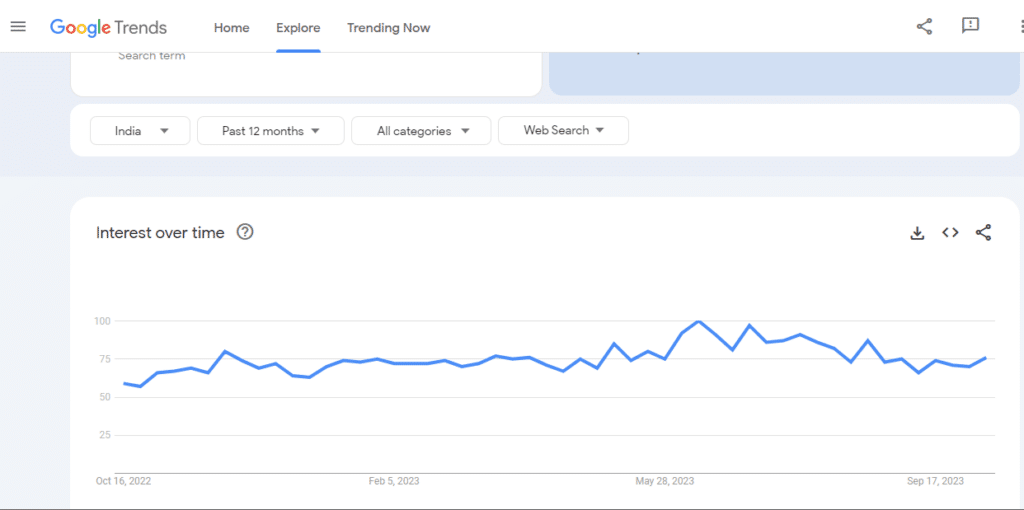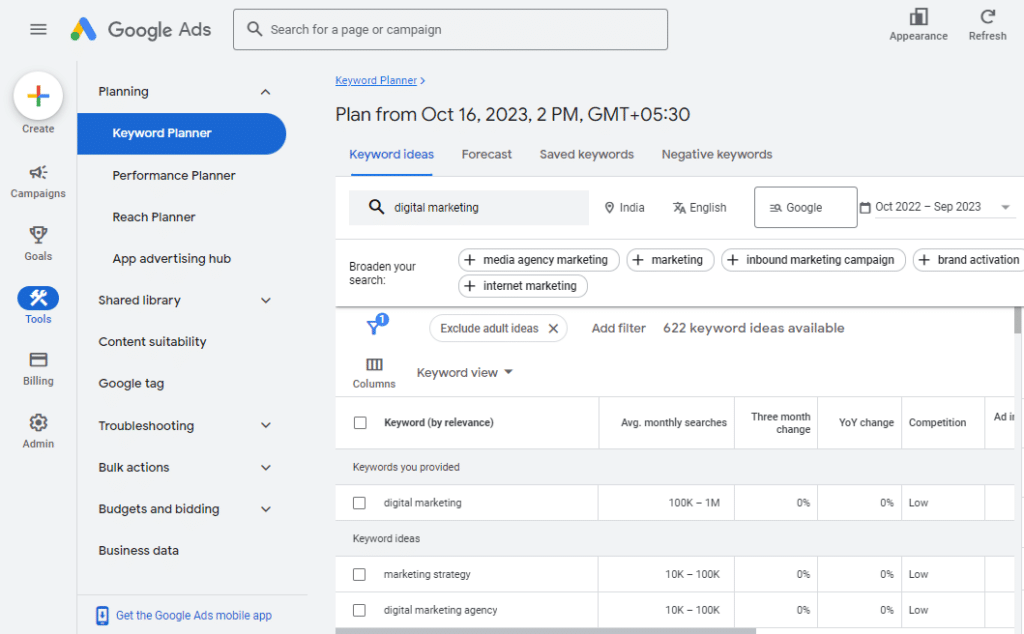
Search engine optimization (SEO) is a critical component of any successful digital marketing strategy. Understanding what your target audience is searching for and optimizing your content accordingly can make the difference between visibility and obscurity in the vast landscape of the internet. Two essential tools for SEO research are Google Trends and Google Keyword Planner, each offering its unique insights and benefits. In this article, we’ll compare Google Trends and Keyword Planner to determine which one is better for SEO.
Google Trends: Uncovering Trends and Seasonality

Google Trends is a free tool provided by Google that allows you to explore the popularity of search queries over time. While it doesn’t provide exact search volume data, Google Trends offers several valuable features for SEO professionals:
- Trend Identification: Google Trends helps you identify rising or declining trends related to your keywords. This can be immensely valuable when creating content or marketing campaigns around current topics or seasonal events.
- Regional Insights: It provides geographical data, showing where your keywords are most popular. This can help you target specific regions or countries for your SEO efforts.
- Related Queries: Google Trends displays related search queries, giving you ideas for long-tail keywords or topics to include in your content.
- Seasonality Analysis: You can see when certain keywords experience seasonal spikes in interest. This data can help you plan content and marketing efforts around peak times.
- Comparative Analysis: Google Trends allows you to compare multiple keywords to determine which is more popular. This can be useful when deciding which keywords to prioritize.
While Google Trends is excellent for tracking trends, identifying seasonality, and gaining insights into what’s currently popular, it does have limitations. It doesn’t provide precise search volume data, making it challenging to gauge the overall popularity of a keyword. For this, SEO professionals often turn to Google Keyword Planner.
Google Keyword Planner: Precise Search Volume Data

Google Keyword Planner is a part of Google Ads and is designed primarily for advertisers. It provides precise search volume data, making it an invaluable tool for SEO keyword research:
- Search Volume Data: Keyword Planner offers exact search volume numbers for keywords. This data allows you to identify high-volume keywords and prioritize them in your SEO strategy.
- Keyword Suggestions: It suggests related keywords based on the ones you enter, helping you discover new keyword opportunities.
- Keyword Competition: You can gauge the level of competition for specific keywords, helping you choose keywords that are easier to rank for.
- Historical Data: Keyword Planner shows historical search volume data, which can help you identify trends and seasonality over a more extended period.
- Bid Estimates: While aimed at advertisers, the tool provides bid estimates that can give you an idea of the keyword’s value.
Keyword Planner is more precise when it comes to search volume data and keyword competition. However, it lacks the real-time trend information that Google Trends offers.
Which Is Better for SEO?
The choice between Google Trends and Keyword Planner ultimately depends on your specific SEO needs and goals. Here’s a summary of when each tool is more suitable:
- Use Google Trends when:
- You want to identify current trends and seasonality.
- You’re looking for inspiration for timely and trending content.
- Regional insights are crucial for your SEO strategy.
- Use Google Keyword Planner when:
- You need precise search volume data.
- You want to analyze keyword competition.
- Historical data is essential for your SEO research.
- You’re primarily focused on keyword optimization for higher search rankings.
For a comprehensive SEO strategy, you can use both tools in conjunction. Start with Google Trends to identify trends and popular topics. Then, use Google Keyword Planner to drill down into specific keyword search volumes and competition. By combining the strengths of both tools, you can create a well-rounded SEO strategy that covers all aspects of keyword research and content optimization.
In conclusion, both Google Trends and Google Keyword Planner have their unique advantages and can be powerful allies in your SEO efforts. The choice between them depends on your specific objectives and the type of data you need. Ultimately, a savvy SEO strategy may involve using both tools to get a complete picture of the search landscape and maximize your online visibility.



0 responses on "Google Trends vs. Keyword Planner: Which is Better for SEO?"